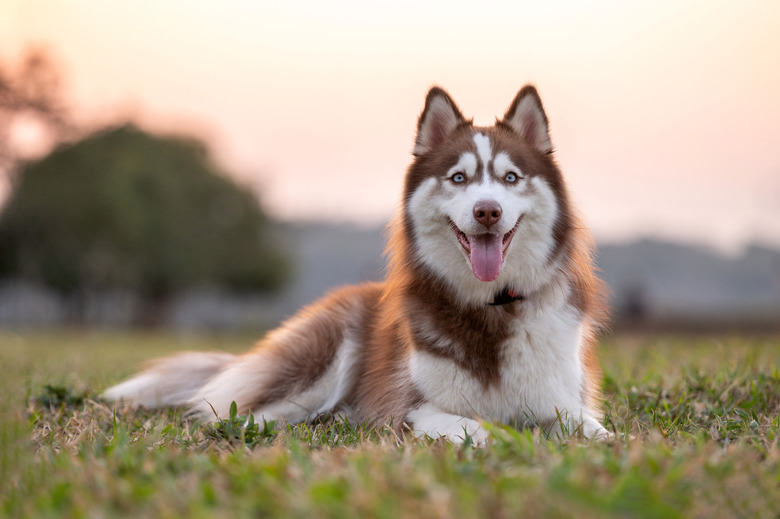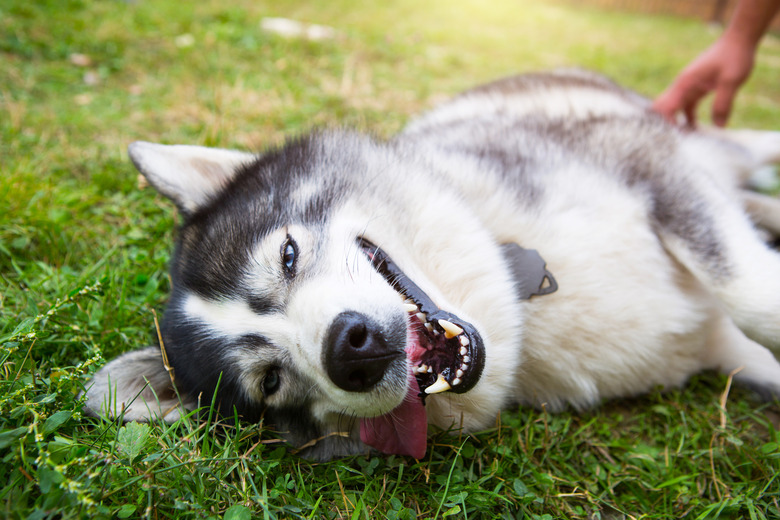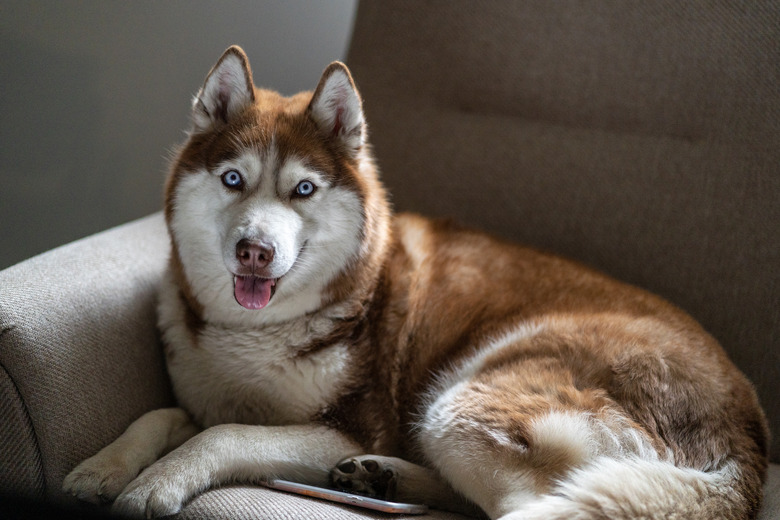What Do Wild Siberian Huskies Eat?
Siberian huskies were bred to be cold-weather workers, so they're inherently domesticated. If you do happen to find a wild Siberian husky — whether he was abandoned or born on the streets — he's probably an opportunistic feeder. In other words, he will eat whatever food he can get.
The history of the Siberian husky
The history of the Siberian husky
Siberian huskies are an ancient breed. By some estimates, they were first raised more than 4,000 years ago by the Chukchi people in Siberia, where they served as sled dogs, guards, and companions. In 1909, they were brought to Alaska and quickly became star athletes in sled-dog races. As such, Siberian huskies are not naturally wild dogs.
That being said, not every Siberian husky has a home alongside humans. Some dogs escape or are abandoned, and when these dogs breed, they'll often form small communities of feral dogs. Wild dogs, including wild Siberian huskies, are generally opportunistic feeders. They eat whatever is easiest to obtain — from scraps of garbage to actual live prey.
What does a Siberian husky eat in the wild?
What does a Siberian husky eat in the wild?
In the wild, Siberian huskies act like other wild dogs. They tend to gather wherever food is most available. They don't often live in urban areas unless they're encouraged (such as if they have a steady source of food and water). They're great scavengers but also hunt live prey if there's no easier option. A wild Siberian husky diet consists of any readily available animal or vegetable matter. This includes:
- Road-killed animals
- Dead livestock
- Scraps from household compost and garbage
- Live prey
Most wild dogs rely on scraps from humans and other animals, but those can be hard to find in the wilderness of northeastern Asia and Siberia, where this breed originates. For this reason, wild Siberian huskies might turn to hunting fish (particularly oily fish like salmon), hares, caribou, and other arctic animals. At a push, a husky might also eat kelp, seaweed, or algae. Wild huskies who hunt primarily get their vegetable nutrients by consuming herbivores.
Domesticated Siberian husky diet
Domesticated Siberian husky diet
There's debate about whether dogs are omnivores or carnivores, but either way, the ideal Siberian husky diet is high in protein. This is particularly important during the winter months when cold-weather dogs tend to work and expend more energy. It is recommended that you feed your husky as much as 32 percent protein in the winter and as little as 20 percent in the summer months.
Some husky-centric rescues suggest feeding your husky a mix of high-quality, well-balanced commercial dog food and raw red meat , but it's important to ask your vet. The right diet depends on your dog's specific needs, and you wouldn't feed a senior dog who lazes around an apartment all day the same way you'd feed a dog who's training for a job. Most domesticated Siberian huskies are put on one of three diets:
- A diet of commercial, kibble-based dog food
- A raw food diet
- A diet that's a blend of both
You can make raw food at home (or rather buy it at a grocery store). Some people believe feeding your pup whole prey mimics the diet she would have in the wild, but it requires careful supervision and isn't the best option for all dogs. If your dog tends to gulp down kibble, a whole raw diet could pose a choking risk. A commercial raw food diet made of fresh or frozen ground meat, bone, offal, and the occasional fruits and veggies may be safer. Always consult your vet before you make any changes to your dog's diet.
Why do huskies eat grass?
Why do huskies eat grass?
Huskies may have a high-protein diet, but they're also known for eating grass. Some experts believe it's a habit domestic dogs picked up from the days when they used to hunt. In other words, this is a habit your husky formed before he was ever bred to be a Siberian husky. Grass contains fiber, and fiber helps dogs pass stool.
Some people believe that dogs eat grass to relieve upset stomach. Less than 25 percent of dogs actually vomit after eating grass, and only 10 percent show signs of illness before eating grass, so this is unlikely. Nonetheless, if you notice your dog nibbling on something usual, it's important to monitor him for signs of illness.
References
- Husky Haven of Florida: Feed Your Husky a Balance Diet
- American Kennel Club: Siberian Husky
- Delaware Valley Siberian Husky Rescue: The History of the Siberian Husky
- Queensland Department of Agriculture and Fisheries: Wild Dog Facts
- Reference.com: What Do Wild Siberian Huskies Eat?
- American Kennel Club: Why Does My Dog Eat Grass?
- VCA Hospitals: Why Dogs Eat Grass


